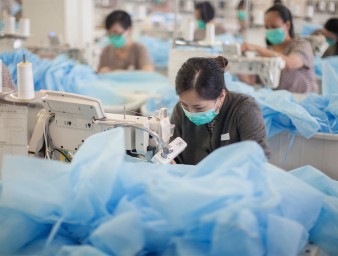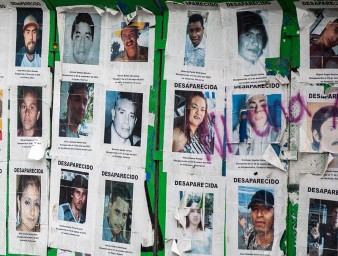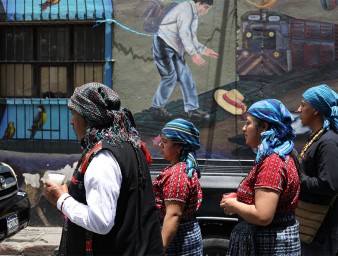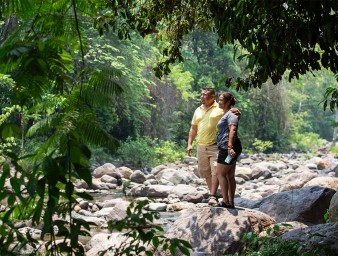Trafficking survivor wants to “make human rights mainstream”
01 December 2023
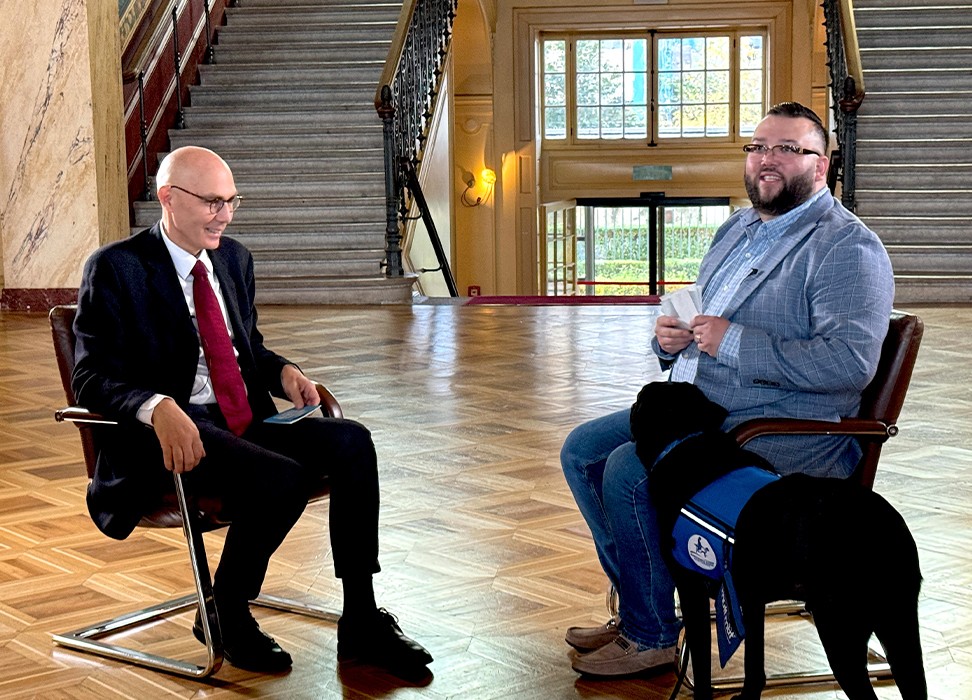
Suamhirs Piraino-Guzman was 14 years old when he was trafficked from his native Honduras and smuggled by his captors into California, United States of America. He was held prisoner and regularly drugged, alone in a dark and windowless room where he endured unimaginable suffering.
“For six long months, I was sold to the highest bidder,” he said.
Today, almost 20 years later, as an adult male survivor of child sexual exploitation and trafficking he has become an outspoken public advocate and an active member of survivors’ networks. He has also entered into his second year as Chair of the Board of Trustees of the UN Voluntary Trust Fund on Contemporary Forms of Slavery.
“Survivors of trafficking and survivors of slavery are at the forefront of the fight against human trafficking and human rights violations,” Piraino-Guzman said. “However, not that many male survivors of trafficking seek support because we struggle with the stigma and the shame associated with our gender. A lot of the services that I was provided did not work because they did not understand the complexities of human trafficking and contemporary forms of slavery. They did not understand how a male could experience severe sexual assault.”
Piraino-Guzman’s road to recovery started when the police raided the house where he had been held captive for six months. Although he was immediately taken to hospital to receive much needed healthcare, he was soon sent to an immigration detention facility run by the US Immigration and Customs Enforcement.
“
They saw me first as an immigrant who, apparently, had no right to be in the United States, yet I had been exploited in the country.
“
Suamhirs Piraino-Guzman
Piraino-Guzman had to wait 36 months before he received an eligibility letter recognizing his status as a victim of trafficking. During that time, he was left to question how he would stay safe from further harm and how he would be able to support himself. He was not allowed to work, which left him vulnerable to further criminalization.
“I was brought in front of a judge who ordered that I be put on a high level of medication because, he said, I had been sexually assaulted so many times I was likely going to do something to somebody else,” he said. “I was criminalised for my own trauma, both by the immigration system in the United States and then by the very system that was supposed to take care of me.”
“The system itself was unready for both the immigrant and the boy who experienced severe levels of sexual violence,” he added.
During the four years that followed, Piraino-Guzman experienced 21 different foster homes, shelters, and mental healthcare institutions, never unpacking the luggage he carried with him. Now, at 33 years old, he lives in Seattle and has acquired United States citizenship. He is a Doctor in Psychology and specializes in trauma-informed care and the mental health services to survivors of contemporary forms of slavery. In 2015, he was appointed by President Barak Obama to serve as a member of the federal Advisory Council on Human Trafficking until 2018.
Asking survivors what they need
“My recommendation to every country that seeks to tackle the issue of trafficking through social services is to dive deep into the community to find out what they need. What I needed at that time was housing, therapy, somebody to talk to,” he said. “I was in a country where I had no family, I had no solution, I had nobody focussed on connecting with me or connecting me with that community.”
For 30 years, the United Nations Voluntary Trust Fund on Contemporary Forms of Slavery, which Piraino-Guzman now chairs, has been accompanying survivors by donating money to grassroots organizations that provide healthcare, shelter, food, legal aid, vocational training, education, income-generating activities and other support.
In 2023, the Fund has aided more than 7,000 people. These range from victims of forced or bonded labour to survivors of sexual slavery, trafficking and children used in armed conflict, among others. The Fund also supports 5,000 survivors of descent-based slavery in the Sahel region through a Special Call.
“What needs to be done across the world is set up services that are not only guided to tackle the trauma that victims experienced, but to connect them to the society they find themselves in now so their well-being can be extended,” Piraino-Guzman said.
“The Fund is looking at creating a linear process to recovery where victims of trafficking are identified and supported, find a way out of their trafficking situation, and then receive the full comprehensive host of services they need,” he added. “We need housing, dental, medical, vision care. We need therapy. We need social economic empowerment. We need to be at the forefront of what is happening in our communities.”
“Vote for human rights”
Almost 75 years ago, representatives from different legal and cultural backgrounds from all regions of the world drafted the Universal Declaration of Human Rights, a set of universal, indivisible and inalienable rights recognizing the equal dignity and worth of everyone.
It was the first time that the international community agreed on a set of common values and recognized that human rights are inherent to everyone for the simple fact that they were born and not because they were granted by States.
For Piraino-Guzman, human rights still seen as abstract in many parts of the world and an unattainable idea written down in “a precious document being held at a United Nations in Geneva.”
“Yet, if you open that blue book then you will realise this is your everyday life - your right to housing, your right to health, your right to a life free from slavery and exploitation and abuse,” he said. “I want people to take action. I want them to know that my rights are as important as the next person’s, and that I, unfortunately, not only had my rights violated when I became a victim of trafficking, but as a person with disabilities.”
“There have been people along the way who have been helpful to me and ensured that my rights are protected and helped me persevere,” Piraino-Guzman added. “Talk about human rights at the dinner table to your children, talk at family gatherings, stand up and make political decisions that are based on human rights so that every person in this world is free from not only exploitation, but also from any type of racism, sexism, homophobia, xenophobia and other forms of systemic discrimination that are unfortunately rampant across the world.”
